Blog
Thoughts, ideas, and learnings from my journey as a software engineer.
Thoughts, ideas, and learnings from my journey as a software engineer.
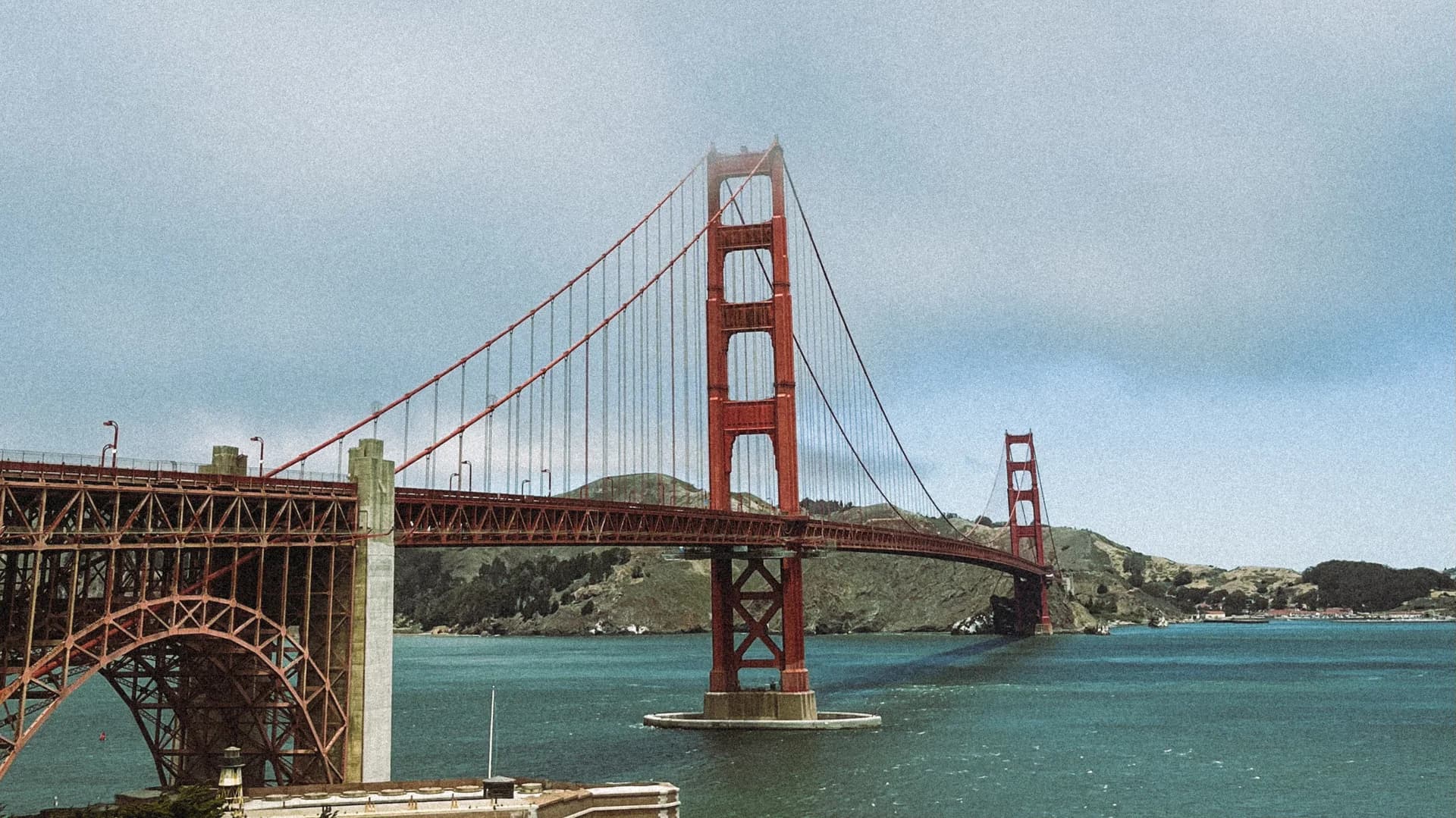
Growing up in Sidoarjo, just outside Surabaya, I lived in a world where dreams had practical limits. My family prioritised education over everything else, we lived simply so I could study abroad, but the idea of casual international travel felt reserved for wealthy families, not people like us. "Maybe when they get married in 10-15 years," I thought after saying goodbye to my exchange friends in Singapore (read here for the exchange stories), assuming that's when I'd next have the money and freedom to see them again.
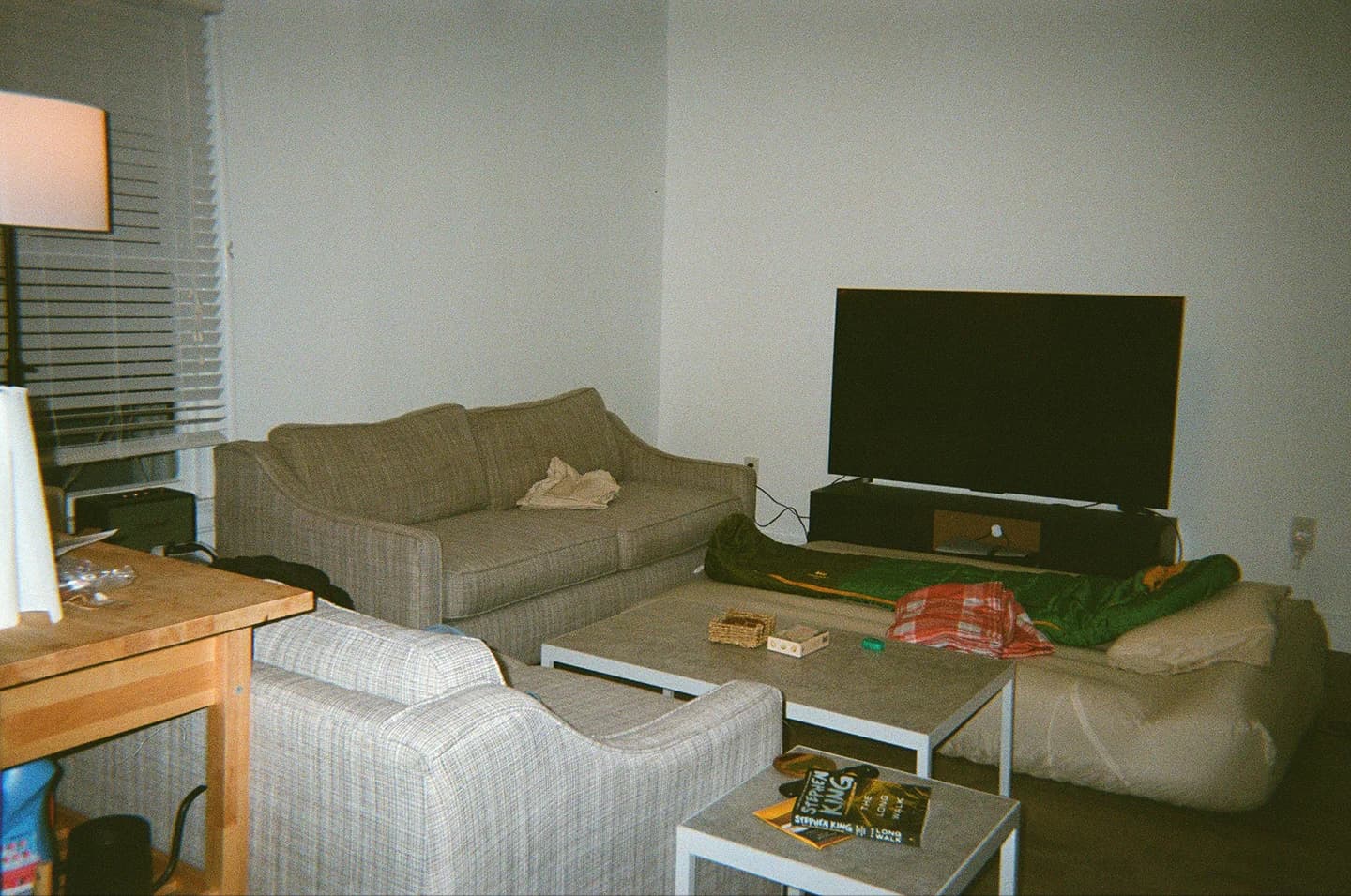
Two years later, I was sleeping on an air mattress in a San Francisco apartment, having made the "impossible" happen through Australian part-time work and stubborn determination. This wasn't just a grad trip, it was proof that the distance between dreams and reality might be shorter than I'd assumed.
Walking out of the SFO exit gate and seeing my friend already there to pick me up felt surreal. This was the same guy who'd casually shattering my assumptions about what was achievable. Back then, I'd told him I couldn't believe I was friends with someone at that level. His response was simple: "Everyone there is just a regular person. They eat the same food, study the same way."
That perspective shift had been quietly working on me for months. When he offered his living room for a month-long stay, I knew this was my chance to see what "regular people achieving extraordinary things" actually looked like up close.
The apartment became my window into Silicon Valley life. Engineers stay up ridiculously late. Coming from Brisbane where everyone's up early, seeing people casually wake up at 8:30 or 9 AM was wild. Casual tech convo in the living room with his roommate, complaints about PRs getting nitpicked, it was simultaneously more relaxed and more intense than I'd imagined. The work-life balance seemed decent, stressful at times, especially in this AI era, but not the soul-crushing grind I'd imagined (I’m sure it’s something I haven’t seen, it’s definitely out there).
What struck me most was how social these engineers were. The stereotype of developers locked in dark rooms didn't match reality. These were people who hangout on weekends, play poker after work, and could casually discuss machine learning over breakfast. Smart as hell, sure, but also surprisingly outgoing.
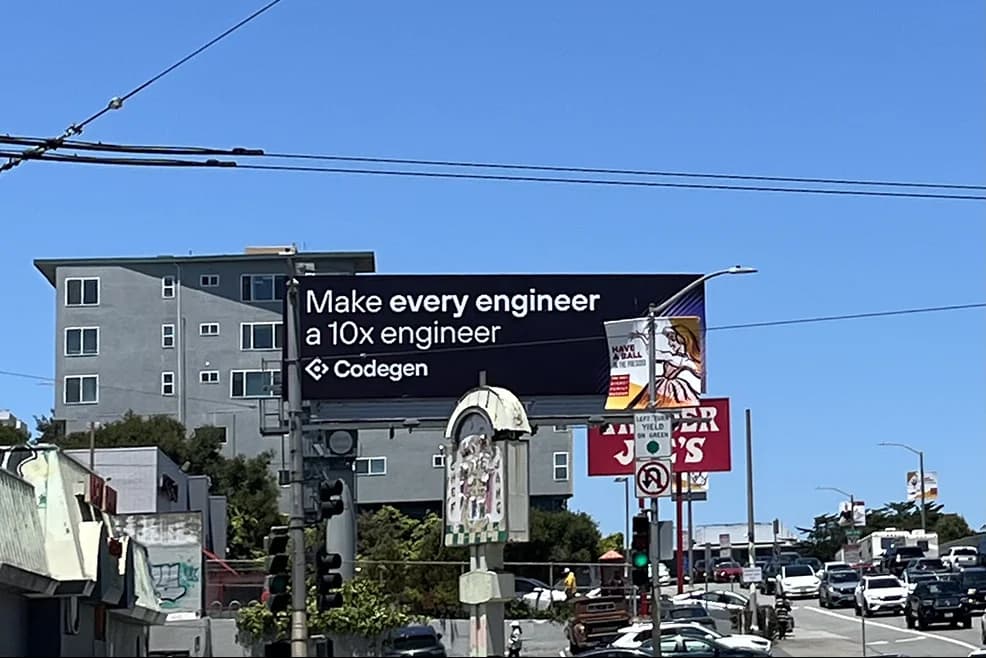
Walking from my friend's place to Target, I started noticing the ads. "Make every engineer a 10x engineer" Codegen. PostHog. Vercel. Nebius. Postman. Every billboard and bus stop seemed to be pushing some AI tool or productivity hack. It was like the city had been finely tuned for one specific demographic, heck yeah: engineers. Try putting a ML optimisation ad in Jakarta and see how that goes.
The tech saturation was everywhere. Uber rides in Teslas. Waymo self-driving cars cruising downtown. Conversations where everyone casually mentioned working at Amazon, Nvidia, Netflix, or Google. I found myself hanging out with people from companies I'd only read about online, and they treated it like the most normal thing in the world.
My friend agreed the AI advertising was getting ridiculous, but it also highlighted something fascinating: SF had become a place where advanced technology wasn't futuristic. The contrast with Indonesia, where tech development isn't the primary focus, or even Australia, where things move at a more measured pace. This was the city setting the global tech tone, and you could feel that weight in every startup pitch on every street corner.
As a CS grad, it made me think about oversaturation. Are there too many people doing CS now? I'm not sure.
 Nope, it’s not when it was happened. Just a random pic of the bus.
Nope, it’s not when it was happened. Just a random pic of the bus.
Route 5 in San Francisco has a reputation. It's the bus line where you're most likely to encounter people struggling with addiction, mental health issues, or homelessness. I was heading home from downtown during rush hour when I witnessed something that completely changed how I think about compassion.
A man in rough shape (clearly dealing with addiction) was trying to get off at the very back of the bus. He had bags and belongings scattered everywhere, was struggling with the stairs, and looked like he hadn't had a good day in months. The back door closed on him. Most passengers, myself included, kept their eyes forward and minds elsewhere.
Then a woman (professionally dressed, clearly just off work, exactly the kind of person you'd expect to avoid this situation) shouted to the driver "Back door!" The door reopened, but the man was still struggling, his stuff falling, clearly having trouble navigating the steps.
Without hesitation, she got up, helped pick up his belongings, and assisted him down the stairs. The door closed again while she was still helping. "Back door please!" she called again, making sure he actually made it off the bus safely.
I sat there feeling smaller than I'd felt in a long time. Here was this woman, successful, well-dressed, probably had her own problems to deal with, who saw someone struggling and immediately acted. Meanwhile, I'd been actively avoiding eye contact, hoping someone else would handle it. Shame on me.
She demonstrated a kind of automatic kindness that I realised I wanted to develop. Not performative charity or calculated good deeds, but the instinct to help when help is needed, regardless of how uncomfortable it makes you.
That moment has stuck with me more than any highlight of this trip.
 Yes, we climbed Half Dome (the one on the right)
Yes, we climbed Half Dome (the one on the right)
After a few weeks in the city, we loaded up the car for Yosemite and Lake Tahoe. I'd experienced nature in Southeast Asia and Australia, but American national parks operate on a different scale entirely. Everything felt massive, well-managed, and surprisingly accessible.
You need passes and tickets, everything runs on systems, but the result is wilderness that's both protected and family friendly. Kids everywhere, parents teaching them to love nature early. Even deep in the valley with no cell service, you'd find well-stocked stores and facilities.
Then came the bear.
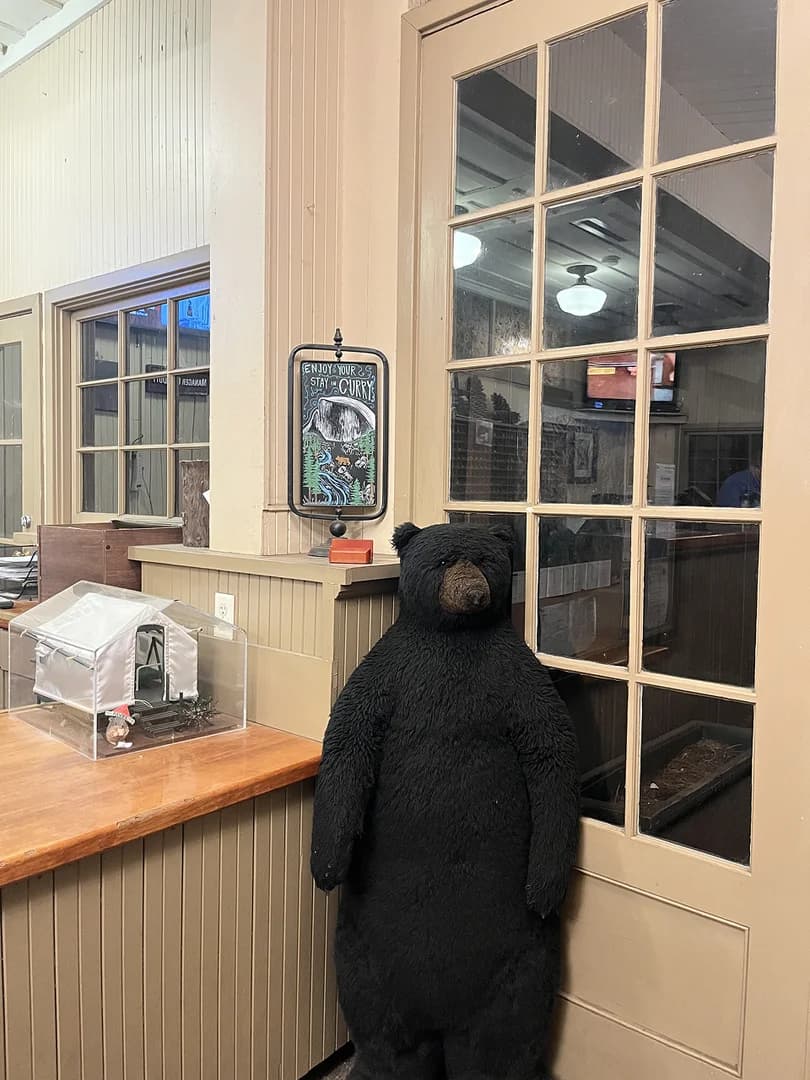
I was alone on a trail. First mistake, doing zero research about bear encounters beforehand, when a black bear crossed the path about 5-10 meters ahead of me. It stopped. Looked at me. My heart was pounding, brain racing through options: turn around? Stay still? Keep walking?
I chose the worst possible option lol, pretend it never happened and keep going. Somehow, it worked. The bear moved on, I didn't get mauled, and I learned a valuable lesson. But in that moment, standing there while this wild animal decided whether I was interesting or not, I felt something I don't get in cities, the awareness that mother nature doesn't care about your plans.
On the day before the bear encounter, descending from Upper Yosemite Falls with my friend, I had one of those random thoughts that perfectly captures our friendship. "This descent is exactly like gradient descent in ML" I told him. "Our stride length is the learning rate, we're trying to find the local minima aka. the valley, and the steepness tells us which direction to go."
He paused and think for a second, but got it immediately. That's the thing about us, you can be halfway down a mountain and still find ways to connect the experience to stuff you both geek out about. I know, I’m a total nerd 🤓.
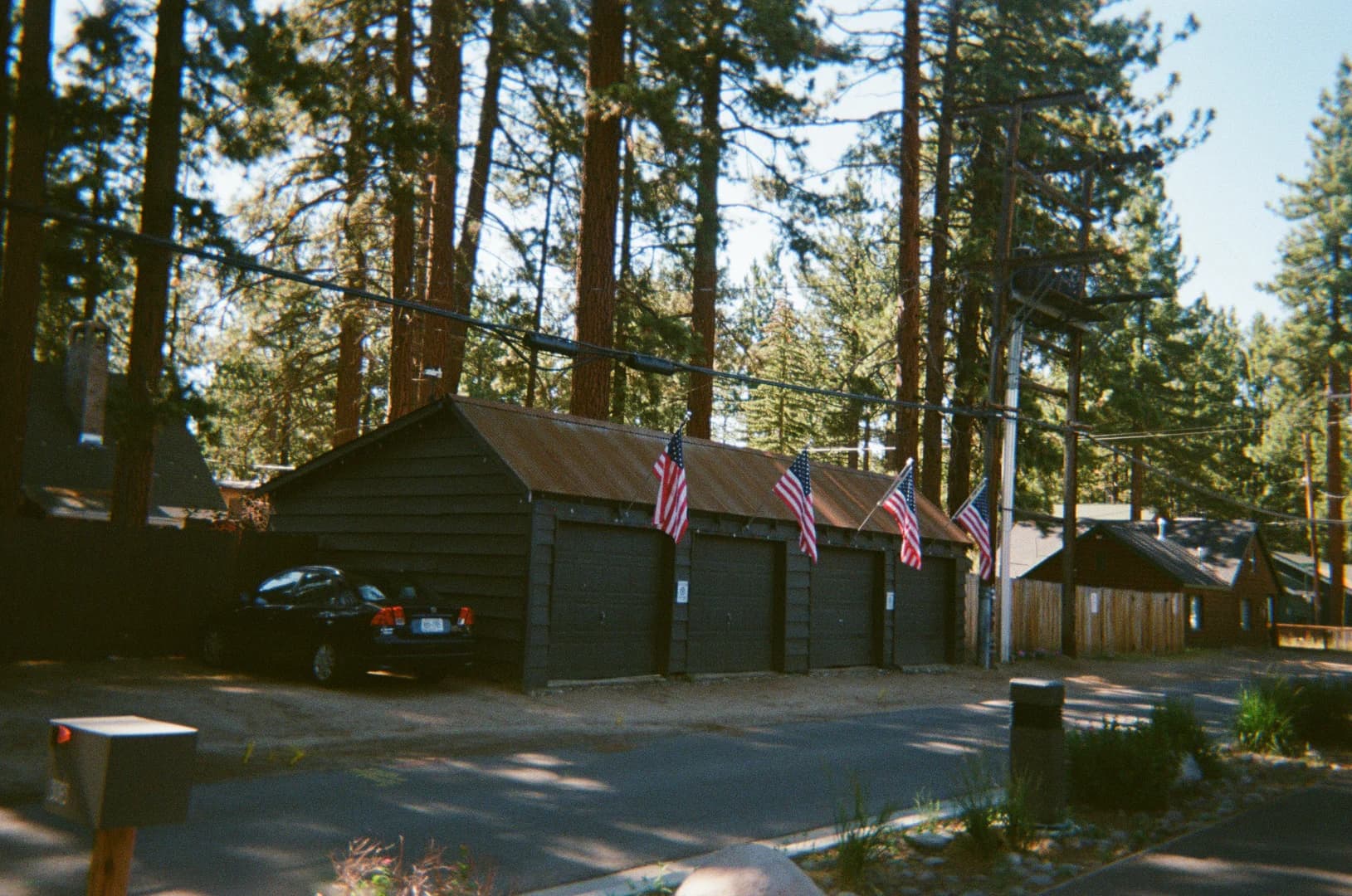
After Yosemite, we headed to Lake Tahoe for the 4th of July. After we got there, my friend told me "This place looks like a regular American tourist vacation town, they basically copy and paste it everywhere." I was just still trying to soak it in, because it none of like Indonesian vacation town at all. But experiencing my first American Independence Day was wild. Everyone dressed head to toe in red, white, and blue. Flag pants, flag underwear, flag hoodies, flag everything. The patriotism was more intense than I'd expected, but also somehow infectious.
This trip felt complete now. I'd seen the big cities, the pristine wilderness, and the classic American vacation town. Three different sides of the same country.
This trip fulfilled something deeper than just seeing a friend again. Making this "impossible" journey happen through my own work and savings proved something I'd only theorised about before, the gap between wanting something and achieving it isn't as wide as it seems from the wanting side.
The multicultural reality of SF was different from Singapore's diversity and completely unlike Indonesia's relative homogeneity. More Latino and Mexican influence, different energy, but the same fundamental truth. When people from different backgrounds end up in the same place pursuing similar goals, the differences matter less than you'd expect.
 These are actually good!
These are actually good!
The food though, 😮💨. American portions are insane, and the fast food made me feel terrible. No wonder there's an obesity problem. The suburbs felt sparse, massive groceries stores and heavily car-dependent.
But the kindness surprised me. Not just the bus incident, but dozens of smaller moments where strangers helped strangers without being asked. Americans might have a reputation for individualism, but in practice, I saw a lot of people looking out for each other.
Living with my friend for a month deepened our friendship in ways that weekend trips couldn't. Seeing him in his daily routine, meeting his work friends, sharing mundane moments, it confirmed that distance doesn't have to weaken meaningful connections if both people are committed to maintaining them.
Most importantly, this experience recalibrated my sense of what's possible. Not in an unrealistic "anything can happen" way, but in a practical "if you want it badly enough to work for it, the barriers aren’t as limiting as they seem" way.
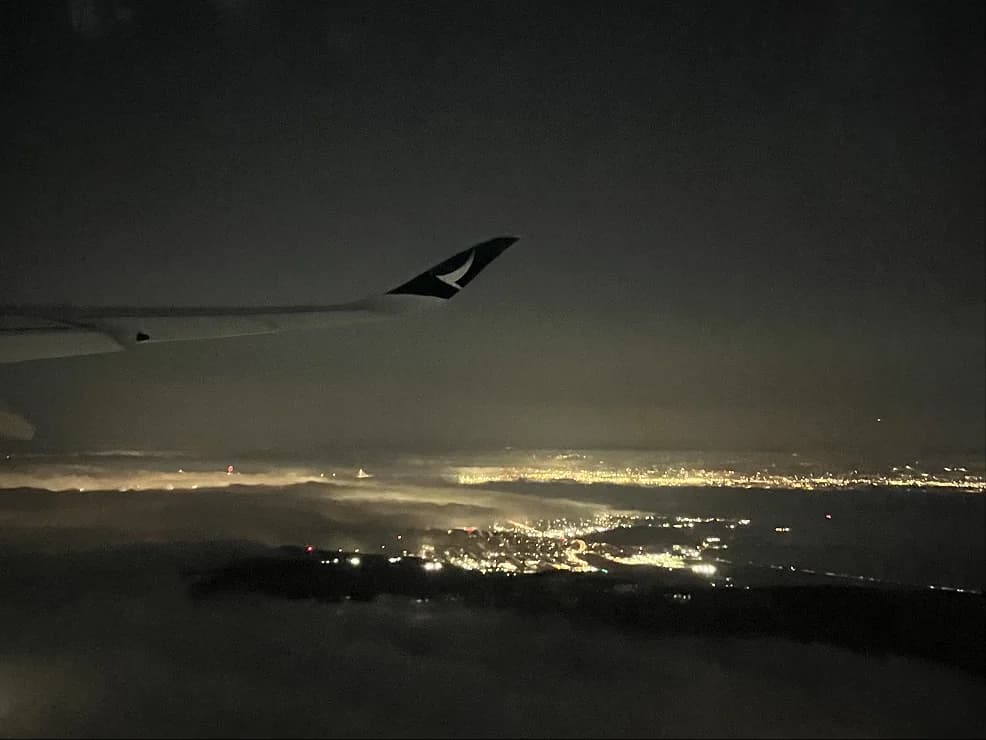
Leaving SF felt different from leaving Singapore. Less final. I knew I could make this happen again if I wanted to. The sadness was there, but tempered by confidence. We'd proven that impossible distances weren't actually impossible.
The confidence from pulling off this trip planted a seed for what came next. Part of that came from my friend, who last year had just done his grad trip mostly solo, backpacking through India, Pakistan, China, and even a bit of Europe. That kind of courage inspired me.
So, when I found myself with free time after returning, more freedom than I'd have again for years and wanted to keep traveling, but no one could join me, I thought:
What if I didn't go straight home? Why not go solo?
Next: Episode 2, where an unplanned detour to New Zealand becomes a solo journey of self-discovery in ways I never expected.